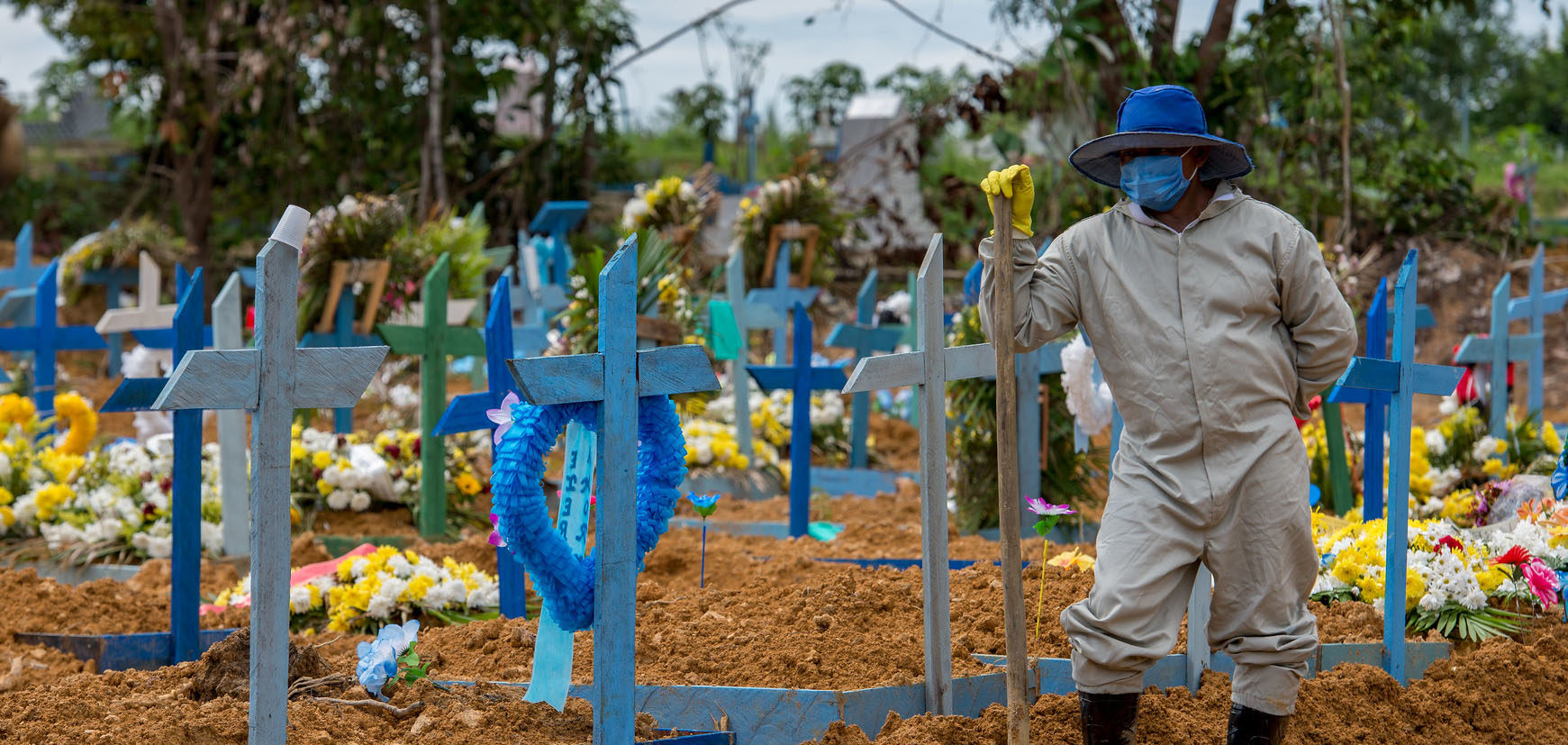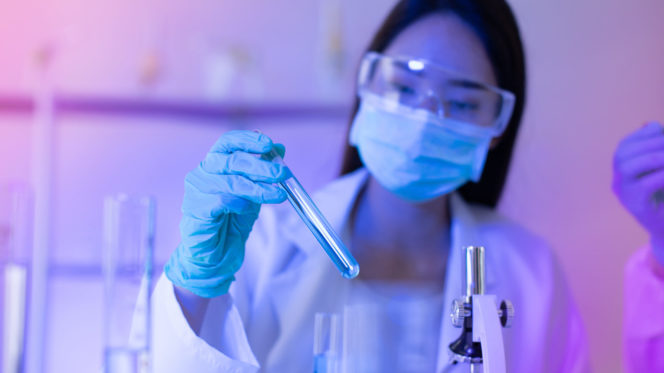Rich States Would Rather Let Poor People Die Than Waive Coronavirus Vaccine Patents
We’re holding billions of people ransom to Big Pharma profits.
by Charlie Young
23 June 2021

The Global North is entering a new phase of the pandemic, with dozens of countries – Israel, the UK and the US among them – having partly or fully vaccinated roughly 40-60% of the populace. The rest of the world, however, has not made such progress. Many countries, mainly in Africa – but also across the Middle East, South America and parts of Asia – are only just edging towards one percent of the population receiving one dose of the vaccine, with some poorer countries yet to log delivering even a single injection.
The inequality is stark. Out of the roughly 2.5bn doses delivered globally so far, 21.1% of the world population has received at least one dose of the vaccine. However, when you look at low-income countries in isolation, the percentage of those who’ve received injections drops radically to just 0.8%. At this rate, poorer countries won’t be fully vaccinated until 2024, according to think tank Progressive International.
Activists across the world have been fighting to correct this gaping inequality, taking aim at the political, economic and legal structures responsible for creating what they refer to as a “vaccine apartheid”.
• 97% of the Oxford Vaccine research was funded by the Taxpayer
• The taxpayer should be able to insist that vaccine patent is shared with poorer countries
End vaccine apartheid
— Jon Trickett MP (@jon_trickett) June 18, 2021
Companies like Pfizer, Moderna and Novavax are producing vaccines for-profit and have seen their shares skyrocket since the start of the pandemic (sometimes by over 1,000%). Indeed, there are now nine new billionaires as a result of the private ownership of vaccine supply, the combined wealth of whom is almost $20bn and more than enough to pay for the vaccination of everyone in the Global South.
Meanwhile, front-line workers in some of the world’s poorest countries are battling the pandemic unprotected because of prohibitively high vaccine costs. The UN recently reported that fewer than 10% of healthcare workers in the world’s poorest countries have been vaccinated, and warn that this could lead to the evisceration of these nations’ healthcare infrastructures.
Vaccine manufacturers are profiting handsomely. Pfizer projected it would make $15bn in 2021, charging $19 a dose at an 80% profit margin that makes it too expensive for most countries to afford. Moderna, whose quarterly revenue has risen from $8m to approximately $2bn in the last year, is charging the US government $25 a dose.
Groups like Oxfam, Global Justice Now, Amnesty International, ActionAid and the Peoples Vaccine Alliance have long been calling for this to change. While anti-vax protests have been consistently covered by the mainstream media, a host of street protests in support of free open-access vaccines have started to emerge across the world – while, of course, receiving precious little coverage.
Pfizer and BioNTech have sold 91% of their vaccines to rich nations.
This is #VaccineInequality in action.
Rich nations need to act with parity, not charity.
Support a TRIPS waiver to ensure EVERY country has access to vaccines, not just the richest. #PeoplesVaccine pic.twitter.com/ag1OFhdfsN— The People’s Vaccine (@peoplesvaccine) June 23, 2021
Activists in countries like South Africa, the UK, the US and Argentina have organised rallies and direct actions to call for an end to vaccine patents. So far, these protests seem to be relatively disparate. However, organisations like Progressive International, which held a Summit for Vaccine Internationalism earlier in the week, are working to draw the movement together and build global solidarity.
These organisations have also been mobilising online rallies and conferences with speakers like Bernie Sanders and Caroline Lucas, and have been lobbying for politicians around the world to demand vaccine justice.
More than 140 world leaders, including the prime minister of Pakistan and the presidents of Senegal and Ghana, as well as Nobel Laureates and former heads of state from around the world, have signed a pledge in support of a “people’s vaccine” – a vaccine that is free of charge and available to all. Since then, both India and South Africa’s governments have pushed the World Trade Organisation to suspend intellectual property rights on vaccines, meaning that the manufacturing process for various drugs could be published freely and anyone with the production capacity could produce them. According to UNICEF, we have the capacity to manufacture 20bn doses in 2021, with half of that manufacturing capacity located in the Global South.
There has been some limited movement on this front in the West. Last month, in a surprising move that got him into hot water with Big Pharma, Joe Biden backed waiving vaccine patents – albeit temporarily. Such a stance, however, is far from the norm among the world’s richer countries. So far, the US and France are the only wealthy countries that support waiving vaccine patents. This lack of support comes as no surprise since wealthy countries stand to benefit most from privatised intellectual property laws – and are quite content to prioritise profit over people’s lives. Unsurprisingly, the Tory-led UK is against removing the practical and legal barriers put up by patents, as is the EU, Australia, Canada and the G7. Instead, rich countries have committed to donating vaccines, claiming against all logic that a vaccine waiver wouldn’t increase supply because poorer countries don’t have the technology or expertise to manufacture them – an argument that is demonstrably untrue.
Bill Gates is lying.
We have the productive capacity to vaccinate the world this year.
And yet – at present rates – it will take 57 years to reach global vaccination.
It’s time to break the vaccine apartheid — and end this pandemic. Join us: https://t.co/ckDOpbfHRp. pic.twitter.com/vctCVwBaJx
— Progressive International (@ProgIntl) June 17, 2021
This is an ideological move, based on a rigid economic dogma that patents underpin innovation and rightly reward private companies taking risks in research and development – an argument that Boris Johnson himself made at the G7.
Currently, 80% of vaccine production takes place in just 10 countries, predominantly those in Europe and North America. Meanwhile, Africa, which has a population of 1.5bn people, is forced to import 99% of its vaccines, and thus relying on the whims of richer nations’ philanthropy. Following the EU and G7 model of donating vaccines to countries without the right to produce them will be both expensive and slow. The G7 announced this year that it will donate one billion vaccine doses to the Global South. But this is a woefully inadequate response, with Amnesty International describing it as a “drop in the ocean,” especially given that G7 countries will have three billion surplus doses by the end of the year.
The IMF has predicted that it will cost approximately $39bn to vaccinate enough people to end the pandemic; whilst organisations like Save the Children estimate that richer countries would need to spend just $0.80 per week per citizen in order to stock the world with coronavirus vaccines. This would be even cheaper, and quicker, if those manufacturing the vaccines weren’t profiting so handsomely from inflated prices.
Of course, there are some exceptions to the rule; the Oxford/AstraZeneca vaccine is being delivered not-for-profit, with the company providing injections at a price that ensures only its costs are covered at just $3-4 per dose.
It’s also worth noting that there are some official organisations whose job it is to promote the widespread delivery of vaccines. COVAX is a multilateral organisation run by WHO, UNICEF and others, that exists to get doses to the Global South, and which most of the world’s nations have signed up to. To date, however, it has missed its targets (by a considerable amount) due to underfunding and logistical issues, with only four percent of the 2.1bn doses administered globally going through the organisation. This is a disturbingly common problem with these kinds of organisations, given that they rely on the voluntary – and all too often insufficient – generosity of powerful nations, and have little authority in and of themselves.
A new must-read from @TheLancet on why COVAX won’t save us and why experts agree: we need a #PeoplesVaccine. https://t.co/uF09gp4bU7 pic.twitter.com/ldXV6XUxKJ
— Andrew Stroehlein (@astroehlein) June 20, 2021
People in the Global South are dying in their millions and governments in the Global North have the means to end that suffering. We cannot continue to allow these politicians to prioritise Big Pharma’s profits over the health and safety of those who have already been forced to endure centuries of violent oppression at the hands of the far wealthier West.
This pandemic has shown how interconnected we are as a planet. It is therefore vital that we resist the logic of individualism, nationalism, competition and manufactured scarcity to develop a truly global plan that will guarantee open access to coronavirus vaccines and treatment. We are not safe until we are all safe.
Charlie Young is a freelance researcher and writer based in London.


